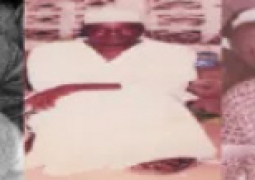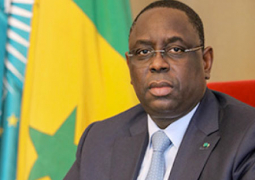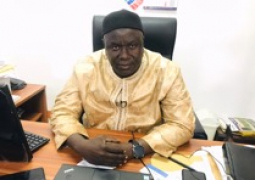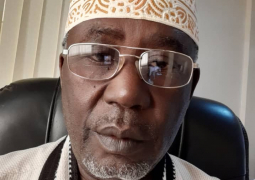Below reads the two human right bodies respective statements:
The Gambia Bar Association [GBA] is very concerned and troubled by the remarks
made by His Excellency, President Adama Barrow at the opening of NPP Bureau in Jarra Soma.
According to audio-video clips making rounds in the media, the President amongst other statements remarked “We will put an end to the practice of insulting others. Even if individuals are released on bail by a judge, we will re-arrest them”.
The GBA is very troubled that the President being the Head of Executive arm of government made the statement that the state will re-arrest individuals even if released on bail by a judge. This statement essentially amounts to a disregard for the legal authority of the competent courts of the country and undermines the respect for the rule of law. To this extent, the GBA categorically states that the statement made by the President of the Republic is unwarranted and has very serious ramifications to the respect for the rule of law, independence of the judiciary and the separation of powers.
The President of the Republic, as the head of the executive branch of Government can only exercise powers within the confines of the law in accordance with the constitution and laws of the land underpinned by respect for democratic values and principles as succintly espoused in the preamble of our constitution “This Constitution guarantees participatory democracy that reflects the undiluted choice of the people.
The functions and arms of government have been clearly defined, their independence amply secured with adequate checks and balances to ensure they all work harmoniously towards our common good.” Any citizen including the President is entitled to the protection of the law and entitled to file complaints against individuals accused of violating the criminal laws of the land to the police for an independent, impartial investigation before a decision to prosecute is made by the relevant prosecution authority.
Under section 85 of the 1997 Constitution, the legal authority to prosecute persons accused of committing criminal offences is vested exclusively in the Director of Public Prosecutions subject to the approval of the Attorney General. The President of the Republic has no prosecutorial power or authority under the laws of the land and cannot lawfully direct or instruct the prosecution of any individual. As such, any attempt to do so constitutes an unwarranted interference with the prosecutorial authority of the prosecuting authorities to make independent prosecutorial decisions without fear or favour.
As a country that came out of the clutches of a brutal dictatorship characterized by the weaponization of the laws and rule of law institutions such as the police, the GBA strongly advises the executive to desist from making any pronouncements or acting in a manner reminiscent of the Jammeh era dictatorship.
The practice of re-arresting individuals released on bail or discharged by the courts is a legacy of the Jammeh era and is an abuse of power as well as a contempt for judicial authority. As a country rebuilding its rule of law institutions as part of its transitional justice process, we must collectively reject such undemocratic conduct and uphold the respect for the rule of law unreservedly.
The social implication of such statements is that it erodes the public’s trust and confidence in the administration of the criminal justice system.
The respect for court orders by the executive is the fundamental cornerstone of the rule of law and underscores the independence of the judiciary. On the other hand, the disregard of the court orders by the executive undermines respect for the rule of law, independence of the judiciary and negates the state’s commitment to democratic governance.
As a country that has defeated dictatorship and is rebuilding its democratic institutions, such a statement from the President is regrettable and a departure from our country’s democratic trajectory. We trust that the unguarded statement by the President will be the last utterance of this nature and strongly remind the President of his solemn undertaking and oath to govern the country in accordance with the dictates of the constitution.
NHRC’s statement
As the State institution mandated to promote and ensure respect for human rights, democratic principles, and the strengthening of the rule of law in all circumstances and without exception, the NHRC continually monitors the national landscape to stay informed of prevailing issues in the country. Following recent developments, the NHRC is deeply concerned with the widening political divide in the nation.
Of grave concern to us are recent statements of H.E. the President made on different occasions. Particularly disturbing were remarks made during a political rally in Bansang on September 29th and subsequent statements at the opening of the NPP Regional Bureau in Jarra Soma on October 3rd. In these addresses, H.E. the President described the United Democratic Party (UDP) as the ‘biggest threat to national security,’ sternly rebuked the Kerr Fatou online media platform and Mengbekering Radio Station and threatened to rearrest individuals alleged to have committed an offence even on bail granted by Gambian Courts of competent jurisdiction. These statements have the potential to undermine the democratic progress made by our country since 2017. They encourage open defiance and disobedience to court orders thereby undermining the authority of the Judiciary and places the lives of media professionals at heightened risk.
According to reports reaching the NHRC, the President's comments were in response to a barrage of criticism against the Government by the Leader of the UDP and some of his supporters. However, the responses of H.E. the President have generated widespread concern from various quarters owing to their severity and implications.
We acknowledge the positive strides made by the Government since coming into Office, including efforts to restore respect for human rights and the rule of law in The Gambia. Nevertheless, we remind the Government of its responsibility to uphold its human rights obligations, as guaranteed by the 1997 Constitution of the Republic of The Gambia and other regional and international human rights instruments that The Gambia has ratified. We urge the Government to commit to upholding and safeguarding the human rights and freedoms of every individual in the country.
While we call on the media to be responsible and ethical in its reporting, we emphasize that the right to freedom of speech and expression, including that of the media, is fundamental to holding power accountable. Threats against the media stifle criticism of Government action or inaction on matters of public concern. They echo the censorship and hostile environment that the media endured in the former regime.
Upholding good governance, respect for the rule of law, and honouring decisions, judgments, and rulings of the Judiciary and recommendations by the NHRC are fundamental to a functioning
democracy. Thus, safeguarding and strengthening the independence of the Judiciary should be of paramount importance to everyone in the country.
We urge all political stakeholders, especially our leaders, to redirect their focus and energy towards pressing economic, social, environmental, legal, and political issues facing the country. Collaboration is necessary to find lasting solutions that improve the lives and livelihoods of the people and contribute to the development and progress of the nation. The TRRC Report emphasizes the need for collective action to realize the ‘Never Again’ mantra.
We remind the Government, especially the Executive, of its primary obligation to guarantee the freedom of the media within the bounds of the law, ensure the security of journalists, create an environment for a robust opposition, and maintain the independence of the Judiciary. Building a New Gambia demands respect for and protection of fundamental human rights and freedoms, adherence to the rule of law, obedience to Court orders, allowance of diverse opinions in the ‘marketplace of ideas’ and promotion of meaningful citizen participation in national dialogues and development initiatives.
Similarly, the Commission is gravely concerned about the deafening silence from authorities, political, and opinion leaders regarding attempts to reverse laws against Female Genital Mutilation/Cutting, the rise in hate speech and bigotry of all sorts and kinds, and statements made by certain religious and opinion leaders against human and women’s rights defenders that have the potential to further polarise our communities, undermine national unity and peace and put lives of individuals in the country at serious risk.
The Commission remains committed to fostering a democratic society where human rights are respected and protected, the rule of law prevails, independence of the Judiciary is guaranteed and all individuals are able to contribute to the progress of the nation without discrimination. In the fulfilment of its mandate, the Commission would not hesitate to hold every institution, organization and individuals accountable for their acts of omission or commission.





